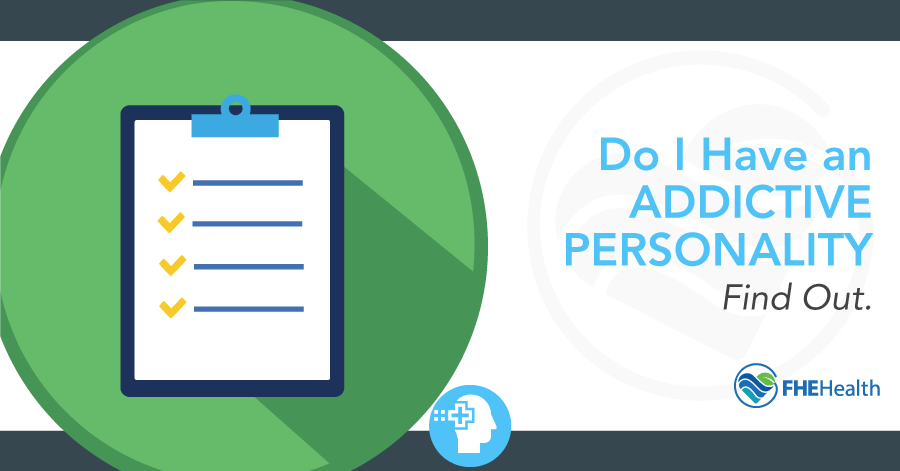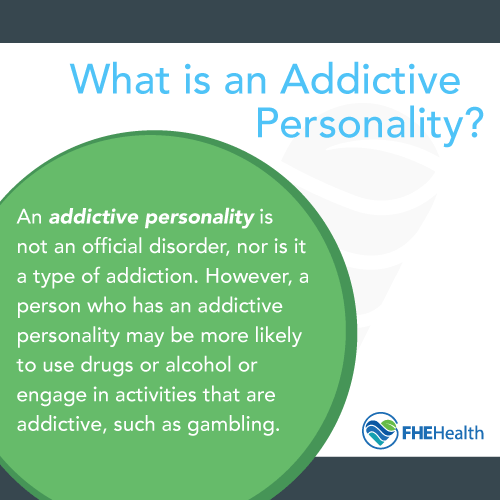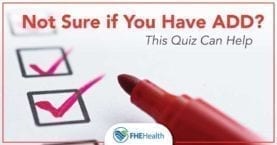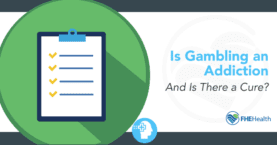
Have you heard the term highly addictive personality and wondered what it means? It’s not a clinical term, but this type of personality may indicate that you are at a higher risk for developing a chemical dependency and addiction.
Do You Think You Have an Addictive Personality?
To find out, take a quick quiz.
Read through the following questions. They are not meant to provide a true diagnosis but to get you started on determining if you may have a highly addictive personality and need help. We encourage you to answer honestly to yourself and then to seek out care from our team at FHE Health if you feel you are at risk.
Quiz: Addictive Personality
It’s important to know that an addictive personality doesn’t mean you have a chemical dependency. However, if you’ve taken this quiz, you may already be worried about your behaviors. It may be time for you to talk to a professional about your concerns.
What Is an Addictive Personality?
 As noted, addictive personality is not an official disorder, nor is it a type of addiction. However, a person who has an addictive personality may be more likely to use drugs or alcohol or engage in activities that are addictive, such as gambling.
As noted, addictive personality is not an official disorder, nor is it a type of addiction. However, a person who has an addictive personality may be more likely to use drugs or alcohol or engage in activities that are addictive, such as gambling.
Imagine a child who spends their time engaging in video games or other activities they find enjoyable. A person with an addictive personality may be unable to walk away from a video game after playing for several hours. They may spend a lot of time with that game, and it may become the only thing they think about doing.
By the time a person is a teen, and well into adulthood, it is possible that this type of addictive behavior can apply to other things. These could include prescription drugs, illegal drugs, alcohol, gambling, sex or many other activities. Where small doses of alcohol may be okay for most people, a person with an addictive personality may be more likely to drink too much or constantly.
What Are Some Traits of a Highly Addictive Personality?
The National Institute on Drug Abuse states that addiction is a chronic and relapsing disorder in which a person seeks out and uses a substance or engages in an activity despite understanding that this action will likely create a negative outcome. Some personality traits could indicate a person is more likely to become or are an addict.
- They are impulsive and display impulsive behavior regardless of consequences.
- They engage in compulsive behavior, often stating they cannot control their actions.
- They experience grandiosity or feelings of superiority.
- They have an inability to deal with anxiety or stressful situations in daily life.
- They have trouble conforming to traditional rules and actions.
- They have low self-esteem, although it may not look like this from the outside.
- They are in denial.
- They lack patience.
What Kind of Personality Traits Do Alcoholics Tend to Have?
While there are many ‘types’ of alcoholics, some secretive and high-functioning, others more boisterous and flagrant, there are some shared personality traits to look for. Some of these traits may only be exhibited when intoxicated or high, while other behaviors are shown in between.
- Arrogance
- Aggressiveness
- Narcissism
- Secretive
- Impatience
- Short Temper
- Sensitive
- Defensive
FHE Health Can Offer the Support You Need Now
Hopefully, this quiz has helped you think more seriously about your self-control and things you’d like to change. If you’re concerned about how your personality has led you into an addiction, contact our compassionate counselors at FHE Health to discuss your specific needs and to learn more about the treatment that may be best for you.









